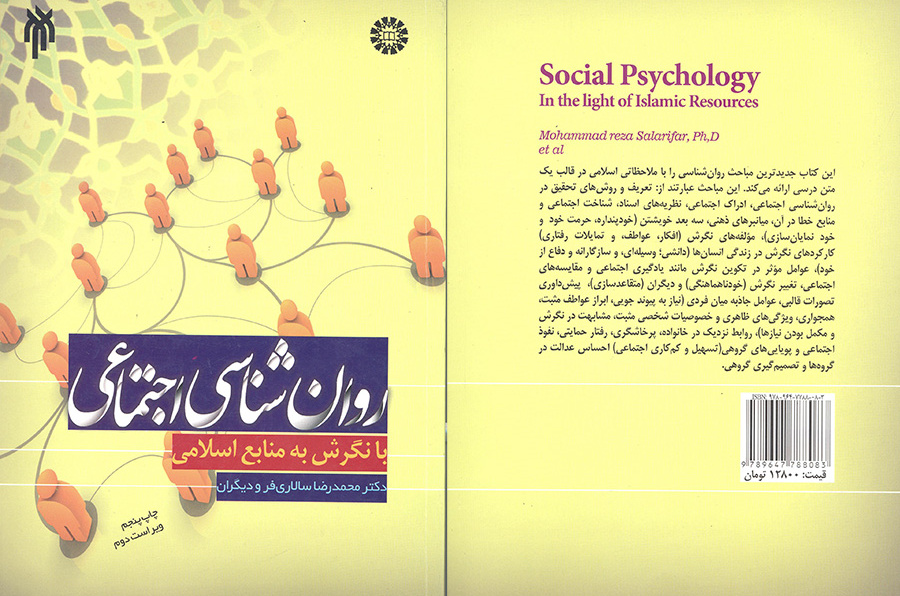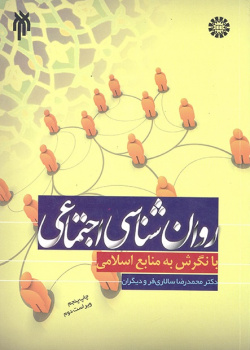

Social Psychology in the Light of Islamic Resources
Doubtless social psychology as a field in humanities is strongly tinged with cultural concerns; thus making use of the rich Islamic knowledge-which either descriptively or didactically remind us about human psychological realities which are founded on divine principles and a priories-is unavoidable if we are to make native humanities. Moreover, making understandable the theoretical models derived from religious sources is a necessary step to be taken toward achieving a school of psychology based on Islamic principles. In the scientific study of social psychology, the main structure of the book is borrowed from the book “Social Psychology” written by Robert A. Baron and Donn R. Byrne in whose approach there is a focus on endowing coherence on different issues in social psychology. In the Islamic domain, apposite and analogous components of each chapter are extracted from creditable sources and texts (such as the Quranic verses, Hadiths and in some cases the books written by Islamic scholars) and after interpretation and analysis, are incorporated in the topic.
The book is in eleven chapters. The first five chapters are theoretical discussions of social psychology and the remaining chapters adopt a more practical approach to the subject. In the chapter dealing with generalities the following issues are addressed: what is Social psychology?; A history of Social psychology; and methods of research in Social psychology. From the second chapter to the end of the eleventh one the topics bellow are argued: social understanding; social knowledge; attitude; pre-judgment; intra-individual attractions; aggression; supportive behavior; social influence; group dynamism; and new methods of research in the field of Social
psychology.
There is a glossary at the back of the book and also an index of subjects, names, and Verses and Hadiths appended.
Suggested as a course book for the students of psychology and education, opposite and analogous components of each chapter of this book are extracted from creditable sources and texts (such as the Quranic verses, Hadiths and in some cases the books written by Islamic scholars) and after interpretation and analysis, are incorporated in the topic.
Ranked First in the 6th Festival of Best Researchers in the Fields of Culture and Religion, 2004
Selected Book of the 11th Student Book Award





